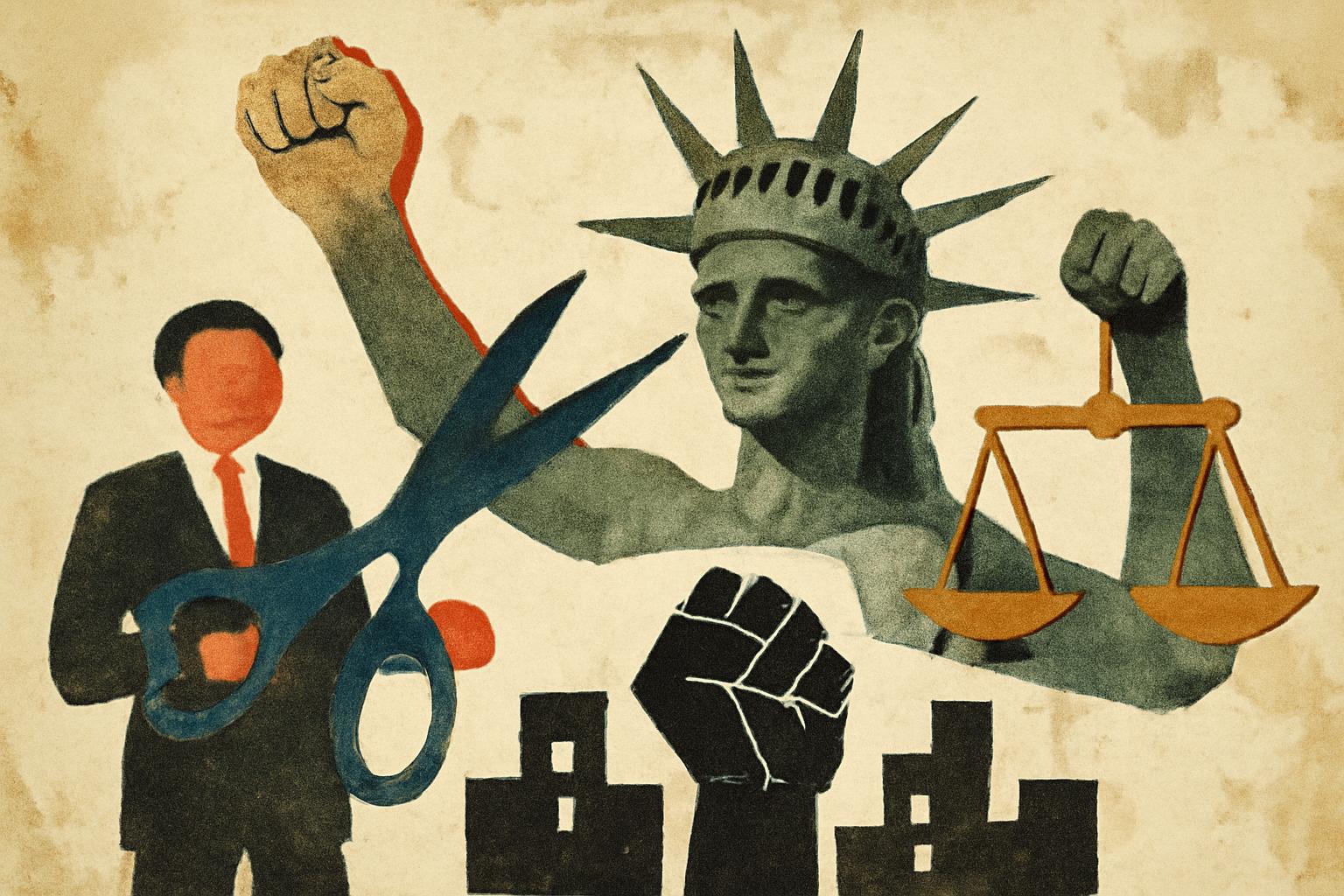The pattern is clear: a government that equates unity with obedience, and a police state that treats dissent as treason. Masked enforcers, inaction by the usual guardians of liberty, and then a nightly escalation of force against ordinary citizens—these are not the signs of a healthy republic but of a regime that has confused its own power with the common good. State propaganda, arrests of peaceful protesters, and violence behind the veneer of public order reveal the same old motive: expand control in the name of legitimacy, crush civil society, and pretend that coercion is the instrument of “stability.”
From Hayek’s vantage point, this is precisely why central power deserves suspicion and constraint. The knowledge problem is acute—no central planner, not even a president, knows enough about the local conditions, the people, or the rival claims on resources to legitimately micromanage every street and protest. The rule of law, not the rule of men, is what preserves freedom. When the state uses violence to silence dissent, it breaks down the spontaneous order that emerges when people are free to associate, exchange, and experiment. A constitutional framework that limits the executive, protects independent courts, and secures the rights of peaceful assembly is the only antidote to creeping tyranny. The remedy is not more policing with greater brutality, but less coercive power and more freedom to organize, speak, and transact without fear of the sword.
Nozick would insist that rights are claims of individuals against others, including the state. The police, the courts, and the government exist to protect those rights, not to suspend them for “the greater good.” A night parade of arrests, the beating of activists, the use of captive authority to humiliate and deter—these are infringements on life, liberty, and property. A minimal state would not tolerate a regime that treats peaceful dissent as a crime to be exterminated or contained by force. The legitimacy of government rests on its willingness to minimize coercion and to respect voluntary exchanges and due process. When the state chooses to brand protest as criminal, it has ceased to be a protector of rights and has become a violator of them. Nozick would call for a rollback of powers that permit such suppression, with stronger protections for free assembly, due process, and the autonomy of individuals against collective coercion.
Rand would frame this as a stark moral indictment of collectivist manipulation. Rights are indivisible and inalienable; the sanctioning of violence against peaceful individuals is not a reasonable trade-off for “order,” but an attack on rational self-interest, productive achievement, and the moral primacy of the individual. The state’s prerogatives are to protect life, liberty, and property—nothing more, nothing less. If the regime quashes dissent to preserve power, it reveals the vacuity of its claimed mandate and the bankruptcy of its ideology. The EU’s acquiescence to crony bargains or its willingness to trade democracy for “economic interests” would be, in Rand’s terms, a betrayal of universal rights in the name of expediency. The only responsible stance—libertarian and moral—is to insist on consistent application of rights, open markets, voluntary association, and a government that earns its legitimacy by honoring individual sovereignty rather than manufacturing threats to justify coercion.
What should be done now, in libertarian terms, is clear: - Defend the right to peaceful assembly and due process. The state’s coercive power should be curbed, not expanded, in response to protests. - Demand an independent judiciary and robust constitutional limits on executive power so that violence against dissent cannot be normalized. - Reduce the scope of state policing in civil life. If force is used, it must be strictly proportional, targeted at actual crimes, and subject to immediate accountability and transparency. - Oppose crony interventions that trade political favors for economic advantage. Let voluntary exchange, competitive markets, and private adjudication determine outcomes rather than state-backed deals that institutionalize corruption. - Protect property and contract rights as the hedge against arbitrary power. A free society rests on secure rights, not on the state’s ability to override them in the name of “stability.” - Treat sanctions as a tool against the regime’s abuses, not against ordinary citizens, and insist that any international action be rights-centered, narrowly tailored, and aimed at stopping coercion rather than punishing the innocent.
In the end, the true measure of a republic is not how it treats its most compliant citizens but how it treats its protesters, dissenters, and those who ask questions about power. If the government must choose between preserving its own grip on coercive authority and protecting individual rights, the libertarian answer is unequivocal: shrink the state, defend civil society, and let people peacefully pursue their lives and property under a rule of law that is universal, predictable, and just.
